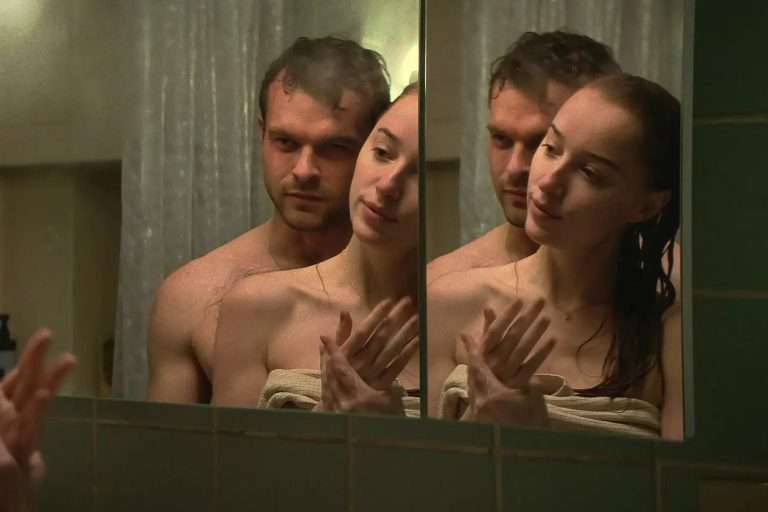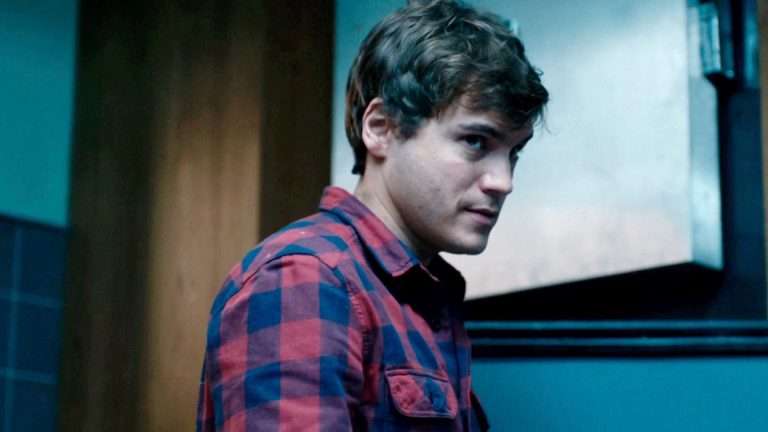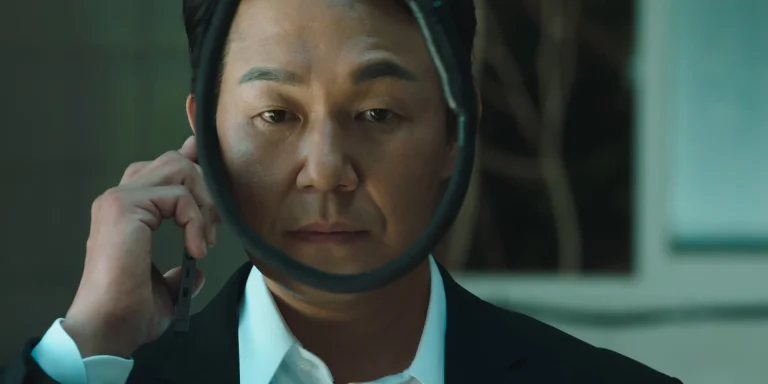Being an ‘indie’ piece of art comes with its own limitations and challenges. Now, the challenges are only those which the writers and directors strive to live up to, but the limitations factor are those that viewers are conditioned to accept. However, the production of David Ash’s “Incompleteness” and the overall making of it is steeped with various level-headed narrative bumps. While it’s part of the show’s logline and its design, it also makes ample room for both the limitations and the challenges. And though it makes do on the former, it fumbles hard on the latter, making it more than partially unsatisfying as a show.
Ash lets on the scientific and philosophical questioning of his right from the beginning. The show has been named after, and is based on, the famous Incompleteness theorem compounded by Gödel. It shows and proves in mathematics that some statements cannot be proved or disproved by a formal system of logic, and everything bound by such an enclosed rule has to assume the existence of something that is beyond its own axioms and projections. It is one scientific statement, so to say, which has even been used as an argument both for and against the existence of God or similar divine.
The theorem comes into play in the show by its name and existence and in more ways than one. The narrative intelligently uses the theorem to fixate on the limitations of human understanding and storytelling. Challenging situations just stand next door. For instance, the cancer-diagnosed Alex underscores his professional identity as a news producer to pursue his dream of making a feature film before he dies while also making a documentary about his pregnant wife and unborn child. The screenwriter to Alex, Paul, has his own anxieties and intimacy issues coming up with an aspiring musician. Meanwhile, the lead actors, Chelsea and Michael, have come up with their own existential method-actor dilemmas.
Basically, the objectivity of truth comes under scrutiny under the lens of intense comedy, which is not even dark or obscure. The incompleteness of knowledge, though, is personal to the characters and their own to deal with. It is the kind of tricky, Nolan-kissing fabrication to storytelling that compels the showrunner (and filmmaker) Ash to challenge to first make the lives of these characters complex and then talk about the sheer nonchalance of their individuality. The commitment to the theorem is nothing if not immensely gratifying.

Which is to say that the show mostly succeeds in being what it wants to be at a narrative level. Ridden with personal indulgences, they never become issues within themselves. Another thing to appreciate about it is the sharp and stirring leading performance delivered by Matt Bailey, who gives his everything to a role that demands not much from him physically. However, for each of the pointers that define Alex as a person and as a character, he has clearly given a piece of himself. Everything mostly works until the series chooses to embrace metafiction from its opening scene.
A film unfolds within the film that is going on in the series, and then the series is referenced. In fact, scenes are repeated, and we are made to feel as if the repetition is only a fleeting feeling. The scenes intercut with the speed of timelines, and the timelines imitate the intercutting in their own way. Some conversations are in sharp contrasts. Others are at a mere crossroads. All of this is to say that the film explores the themes of identity, morality, love, existence, and the art of filmmaking, coupled with a certain theorem. But as easy as that might be on the mind, it doesn’t look as easy on the screen. All of this is fascinating, but like the narrative, only on paper.
Referencing different versions of a singular narrative becomes an exhausting narrative gimmick after a certain point. Make-believe versions of mediocrity or horrible staging are made fun of, but no conscious effort is seen to better it. In fact, the editing technique, which is one aspect that the film is totally proud of, exists like a sore thumb. In an attempt to juggle different stretches of sequences with fourth wall breaks, the war-mode editing gets exhausting for the eyes, up until the point at which the mind cannot take any more challenges. The complex bond between Chelsea and Michael, played by Christine Weber and Juan Rivera LeBron, respectively, is hardly convincing.
What David excellently does here is to intensify and absorb the challenges of intelligent meta-fiction. However, the great idea doesn’t translate immediately into a great narrative series. The camerawork by Brennan Vance is especially dull and makes visible the budgetary limitations of the show. While this works for a narrative feature film, it hurts the sustainability of a long-form series, which is exactly what happens here. However, it sets a partially interesting set-up for a second reckoning, and one can only hope for it to bounce back more resourcefully. After all, even the variable of a narrative entity like that of “Incompleteness” deserves to be more glossy and engaging for the eyes and mind.







